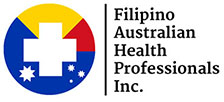Medical Corner: COVID-19 Update July 2020
Since the first confirmed COVID-19 case late January 2020 in Australia, the pandemic crisis in general has been contained and the curve has been flattened. There are reported outbreaks in some “hotzone” suburbs in Victoria, where second wave is predicted, compelling the state government to impose hard restrictions and border closure to contain community transmission.
As of July 04, there are 8362 confirmed total cases (0.3%) out of 2,668,036 total tests conducted, 7355 recovered, 104 deaths and about 113 new cases registered in the last 24 hours out of 50,176 tests done. The next challenge is to crush the curve and lay down the platform to get people back into work, drive economic growth and restore order to social disruptions in the era of new normal.
SARS-CoV-2 Treatment UPDATE
No treatments have been approved or shown to be safe and effective for COVID-19 with the exception of Remdesivir, which has been authorised as an emergency-use in the US, while it is optional in Europe and UK. There are several treatments being used on a compassionate-use basis or as part of a randomised controlled trial.
“SOLIDARITY” trial is an international clinical trial launched by the World Health Organization and involves more than 100 countries. Its main aim is to find an effective treatment for COVID-19 by rapidly discovering whether any of the drugs slow disease progression or improve survival. The trial compared 4 different drugs: antimalarial drug Hydoxychloroquine or Chloroquine, HIV drug Lopinavir/Ritonavir, Lopinavir/Ritonavir plus Interferon and Remdesivir. Interim results reported that hydroxychloroquine and lopinavir/ritonavir produce little or no reduction in the mortality of hospitalized COVID-19 patients compared to standard of care hence, the use of this drug to treat COVID-19 will immediately be discontinued. Preliminary results from UK RECOVERY trial also found no beneficial effect of lopinavir/ritonavir in hospitalised patients with COVID-19.
Meanwhile, a 10-day course of Remdesivir infusion resulted a faster recovery time compared with placebo (median recovery time of 11 days vs 15 days). Results were significant only among patients who received oxygen but no reduction in death. The guideline panel does not recommend for or against Remdesivir for the treatment of mild or moderate COVID-19 as there are insufficient data. A trial of inhaled Remdesivir is about to start phase 1 clinical trials. In Australia, the Remdisivir infusion is approved by the Therapeutic Goods Administration (TGA) as compassionate drug only and within the context of clinical trial.
The randomised evaluation of COVID-19 therapy UK “RECOVERY” trial is testing the following therapeutic options: Lopinavir/Ritonavir; low-dose Dexamethasone, Hydroxychloroquine, Azithromycin, Tociluzumab and Convalescent Plasma. In patients hospitalized with COVID-19, low dose-Dexamethasone reduced 28-day mortality among those receiving invasive mechanical ventilation or oxygen at randomization but not among patients not receiving respiratory support. The use of Dexamethasone in hospitalised SARS-CoV-2 disease is currently the only drug that reduced death but still awaiting peer review.
There are currently insufficient evidence to recommend either for or against the use of convalescent plasma for the treatment of COVID-19. The authors of Cochrane rapid review were uncertain as to whether convalescent plasma is an effective treatment for COVID-19. Immunomodulating drug like Interleukin-6 receptor antagonist monoclonal antibodies (e.g., tocilizumab, sarilumab, siltuximab) is being trialled in COVID-19 patients for the treatment of virus-induced cytokine release syndrome. The decision to suppress the immune system of a critically unwell patient with COVID-19 is a difficult one and the beneficial anti-inflammatory effects of anti-inflammatory drugs must be weighed against the possibly detrimental effects of impairment of immunity.
In a small study in Wuhan, the use of Inhalational Interferon-alpha 2b resulted significant reduction in duration of detectable virus in the upper respiratory tract, in parallel reduced duration of elevated blood levels for the inflammatory markers IL-6 and CRP. A trial of Inhalational Interferon Beta-1 (SNG001) in SARS-CoV2 patients (home, hospitalised) from UK NHS group have been completed and the result will be released soon.
A review in the British Journal of Pharmacology identified three stages of infection at which the virus could be targeted: keeping the virus from entering our cells, preventing it from replicating inside the cells, and minimizing the damage that the virus does to the organs. It seems that antivirals work better if administered sooner, “before the virus has a chance to multiply significantly” or “before the virus has caused significant damage to the body” such as to the lungs or other tissues. According to Centers for Disease Control and Prevention (CDC) Agency for Toxic Substances and Disease Registry (ATSDR), both antiviral and vaccine will be valuable tools in combating COVID-19.
SARS-CoV-2 Vaccine
Vaccines mimic the virus or part of the virus – they protect against, stimulating the immune system to develop antibodies. They must follow higher safety standards than other drugs because they are given to millions of healthy people. Researchers around the world are racing to develop a vaccine against COVID-19 with more than 140 candidate vaccines now tracked by the World Health Organization (WHO). Vaccines normally require years of testing and additional time to produce at scale, but scientists are hoping to develop a coronavirus vaccine within 12 to 18 months.
COVID-19 is here to stay until an antiviral drug and a vaccine is available. In the meantime, we must learn and adapt to balance the “new normal” while keeping COVID-19 in check.
“We’re not racing against each other, we’re racing against the disease. Everybody wants to get everybody to speed up and try to get rid of red tape, but a reason that some of that tape is there is for safety purposes, when you know you're going to have to be giving billions of doses of this vaccine, you want to make sure you're doing the right thing.” Paul Perralut, CEO, CSL*. *CSL developed a vaccine for the Spanish flu pandemic in 1918.
Dr Ramon Joel Seastres MD. FPCP, FPCC, EDIC (Europe)
Adult Cardiology - Intensive Care Medicine
Director of Medical Program, FAHPI
Email: fahpinc@gmail.com
Canberra, Australia
